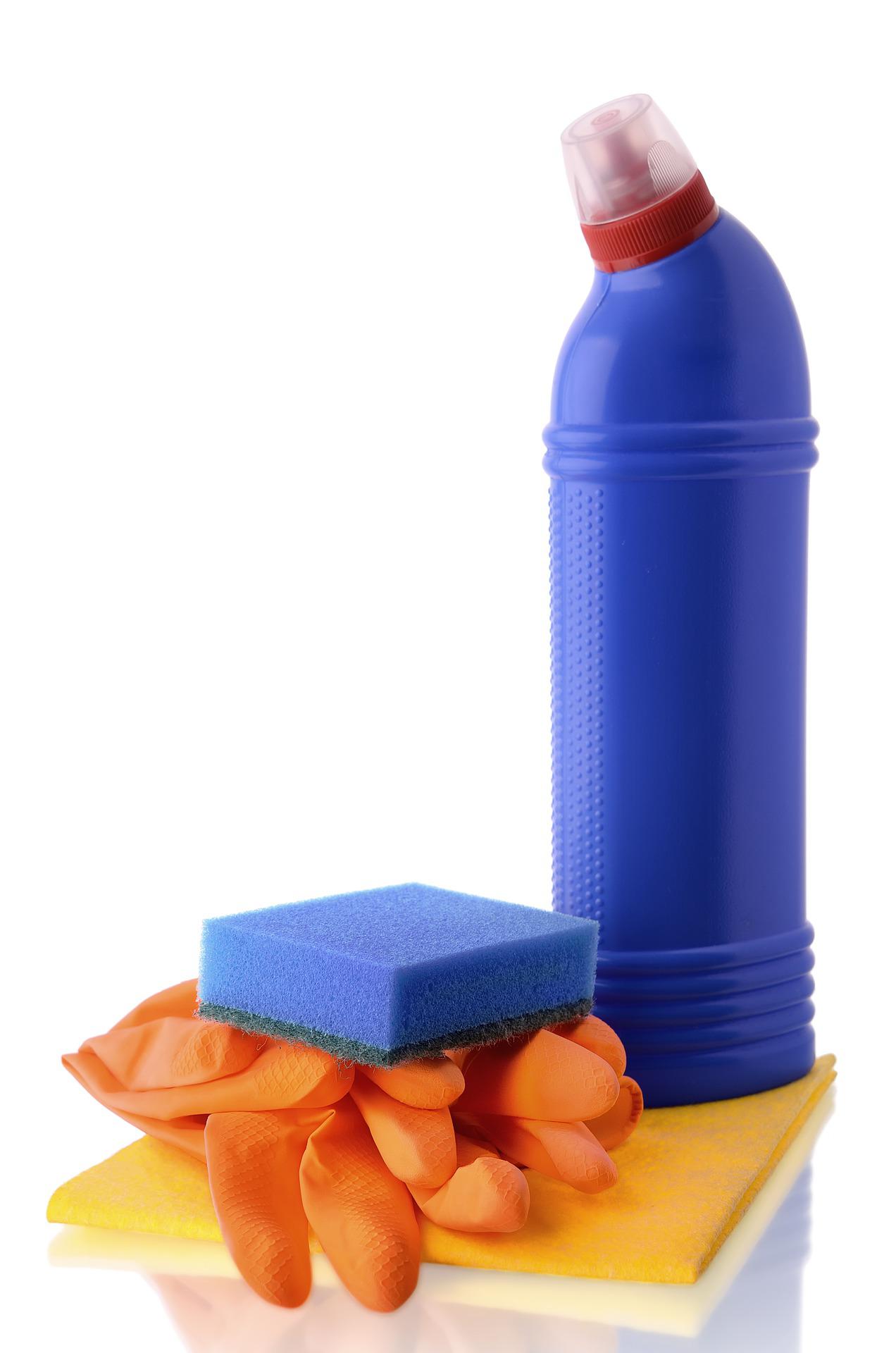Dealing with a bleach smell in your house can be incredibly frustrating, and you may be left wondering what is causing the smell in the first place.
Bleach smells around the house are usually caused by the mixing of chemicals – typically during the disinfection of indoor swimming pools or during cleaning. A strong, persistent chlorine smell can also be a sign of a gas leak, which requires emergency attention.
In the rest of this article, we will explore the most common reasons for a bleach smell in your house, how you can prevent it from happening in the future and how to tell when it’s something more serious.
Let’s jump right into it.
What To Do If You Notice A Bleach Smell
Before anything else, you should open as many windows and doors as possible to improve circulation.
Exposure to chlorine gas – the chemical that causes the bleach smell – can have severe health implications. If you notice any of these symptoms, such as nausea or difficulty breathing, then get outside straight away and call the local gas emergency services.
If a small amount of chlorine is present, it will likely not affect your health and you will be able to go back inside once the air has circulated through to find the source of the smell.
What Is Chlorine Gas?
Chlorine gas is yellow-green at room temperature and has a similar odor to bleach, which is why a bleach smell in the house is commonly associated with the presence of chlorine gas. Chlorine gas is much denser than air – roughly 2.5 times more – and therefore is likely to remain near to the ground with little movement.
It can be created by the mixing of different chemicals, and it is used to disinfect water as well as in various manufacturing processes.
Why Does Bleach Smell Like Chlorine?
Household bleach is a mixture of the chemical sodium hypochlorite diluted with water. The concentration of sodium hypochlorite is usually around 3% to 6% for household applications.
Sodium hypochlorite, NaCLO, contains chlorine, which is the reason for bleach smelling like chlorine.
In practical terms, this means that when you are smelling bleach around the house it is usually just chlorine that you are smelling instead. This is useful to know because it allows us to pinpoint the most common causes of a bleach smell in your house, which we will dive into shortly.
Most Common Causes For Bleach Smell In Your House
The smell of bleach, caused by chlorine gas, can be caused by several things that range in severity.
Mixing Chemicals During Cleaning
It can be all too easy to mix different chemicals when cleaning, but you need to be careful to not mix the wrong things together.
Bleach and vinegar, for example, create chlorine gas when mixed. Always read the label of the cleaning agent you are using to check for anything that you shouldn’t mix with it, and follow the advice.
It doesn’t take a huge amount of cleaning solution to form a noticeable amount of chlorine gas, which can lead to symptoms right away.
Pool Disinfection
Swimming pools are treated with chlorine to kill germs and make the water safer for swimming, but it can also cause a pretty strong smell of chlorine during the treatment.
If you have an indoor swimming pool make sure you follow the necessary safety precautions while handling the chlorine and keep the area well ventilated during the process.
This is likely the least common reason for a bleach smell in your house, but if you do happen to have a swimming pool it’s highly likely to be the cause of the smell.
Gas Leak
If you notice that the smell of chlorine is very strong, and possibly noticeable in the air, then you may be experiencing a gas leak. Gas leaks will usually be very obvious and are definitely different to the faint smell of bleach that the other factors in this list may cause.
Gas leaks are very serious, however, and you should evacuate the house as soon as possible and alert the local gas emergency services. Exposure to chlorine gas during a gas leak can cause some serious long and short term health problems, so you should try to respond to the smell as soon as possible.
Chlorine In Water
Drinking water is treated with chlorine to make it safer to drink, but it can sometimes smell like chlorine because of this, especially if the levels are particularly high.
You can smell chlorine at as low of a level as 1mg/L, which is well under the maximum limit of 4mg/L set by the EPA, making chlorine-smelling water quite a common occurrence. The water is still completely safe to drink, but there are some methods you can use to lower the amount of chlorine if you are concerned that we will get into later in this article.
How To Get Rid Of A Bleach Smell In Your House
If the bleach smell isn’t coming from a gas leak, but another one of the factors listed above, it can be quite easy to get the smell out of your house.
Most of the time once the bleach smell has been removed you won’t notice it coming back unless the source of the smell is more difficult to remove (such as chlorine in water).
Open Windows And Doors
The fastest way to get a bleach smell out of the house is to open as many windows and doors as possible.
This will quickly flush the air inside with air from outside, getting rid of the smell in a matter of minutes. An even faster way of doing this is to create a draft through the house by leaving indoor doors open as well to pull the air through in a particular direction.

Use Bathroom Exhaust Fan
Another quick method that is especially helpful if you have accidentally mixed some chemicals while cleaning your bathroom is to switch on the exhaust and shut the door for a while.
Bathroom exhaust fans are highly effective at removing smells, and despite the fact that chlorine gas is denser than air and will therefore settle lower in the bathroom, it can still remove in a matter of minutes. This happens because the exhaust fan promotes air circulation which causes the chlorine gas to circulate from the bottom of the bathroom until it is eventually removed.
Deodorize
If the bleach smell remains after opening doors and windows or using exhaust fans then you can deodorize with an air freshener spray.
We only recommend doing this for faint bleach smells – don’t forget that if the smell persists after using the methods above it could be an indication of a gas leak.
Signs Of Chlorine Gas Exposure
There are a few typical signs of chlorine gas exposure:
Inhalation
Inhalation is the most common reason for exposure to chlorine gas and can lead to a sore throat and cough at low levels.
At higher levels of exposure, it can cause wheezing, chest tightness and other symptoms. Severe exposure can be fatal, but in the case of exposure at home, you are likely to be at the lowest levels.
Eye Contact
Contact with the eyes can lead to irritation and blurred vision.
At higher levels, you may experience chemical burns or ulcerations, although this is very unlikely in the home setting.
Final Thoughts
A bleach smell in your house is more than likely caused by chlorine gas, which can be produced in a variety of different ways.
Increase ventilation right away and contact the emergency gas services if you suspect a leak. Otherwise, the source of the smell should be relatively easy to identify and also remove using the pointers in this article.
Exposure to chlorine gas at home is not serious most of the time, but you should still be cautious to avoid the more serious symptoms that can develop.
